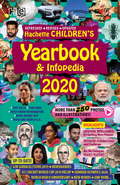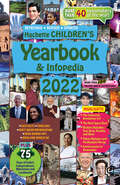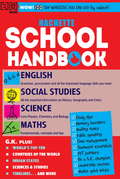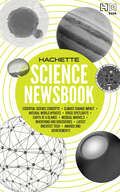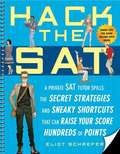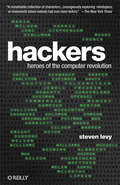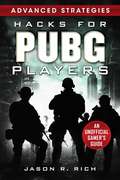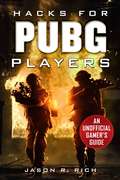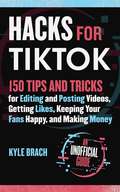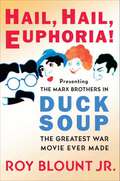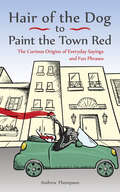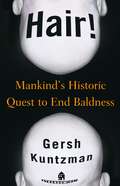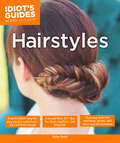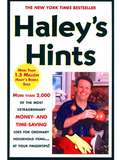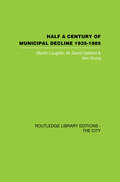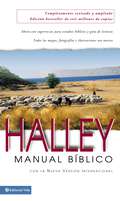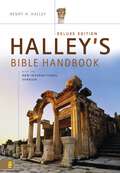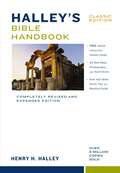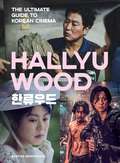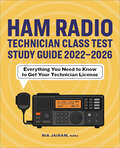- Table View
- List View
Hachette Childrens Yearbook and Infopedia 2020
by Inhouse11th UPDATED EDITION! KNOW MORE THAN EVER BEFORE! * If you want a fact-finder... * If you’re looking to expand your GK... * If you wish you had a ready reckoner of must-know information... * If you need to know what in the world is going on... This book is indispensable for you! The Hachette Children’s Yearbook & Infopedia brings you news, general knowledge, current affairs, fascinating facts and loads more about your favourite focus points in every annual bestselling edition. With well-researched and updated content and data, this book is the essential companion for every smart student who wants to stay ahead.Pick it up and start to explore – for reference, homework and projects! Plus facts and stats on India and every country in the world! What You’ll Find Inside:1. News Highlights from India and around the World2. People Who Made Headlines 3. Inside the Earth 4. Out There in Space 5. History Timelines 6. Science Basics That Matter 7. Literature Info 8. Sports Spotlights 9. Geographical Records 10. The Year Ahead
Hachette Children’s Yearbook & Infopedia 2022
by Hachette India13th Updated EditionA power-packed GK, current affairs and reference book!If you want a fact-finder, if you're looking to expand your GK, if you wish you had aready reckoner of must-know information, if you need to know what in the world is going on...then this book is indispensable for you!The Hachette Children's Yearbook & Infopedia brings you news, general knowledge, current affairs, fascinating facts and much more about your favourite focus points in every annual bestselling edition. With well-researched and updated content and data, this book is the essential companion for every smart student who wants to stay ahead.Pick it up and start to explore - for reference, home assignments, projects and somuch more!PLUS: FACTS AND STATS ON INDIA AND EVERY COUNTRY IN THE WORLD!What You Will Find Inside:*News Highlights from India and around the World*People Who Made Headlines*Inside the Earth*Environment News*Out There in Space*History Timelines*Science Basics*Literature Info*Sports Spotlights*Superlatives*The Year Ahead...and More!DON'T MISS*75 Years of Indian Independence *Tokyo Olympics and Paralympics Round-Up *The New Industrial Revolution *What on Earth Is Happening in 2022
Hachette School Handbook
by Hachette IndiaEVERYTHING AT YOUR FINGERTIPS! Here?s the right choice for smart achievers: a one-stop reference book for every student! It has all the essential information needed for the Big Four: English, Mathematics, Science and Social Studies, plus important G.K. modules as well as valuable tips?all presented for quick reference whenever you need them. Comprehensive and concise, the Hachette School Handbook is a handy and easy-to-carry student?s companion to help you get ahead and stay ahead. * Grammar Rules * Parts of Speech * Punctuation * Writing Skills * Computer Terms * Maths Formulas * Numbers * Factorization * Integers, Fractions + Decimals * Juggling Quantities * Geometrical Shapes + Forms * Exponents + Powers * Algebraic Expressions * Plant Life * Our Body * Metals + Non-metals + Acids, Bases + Salts * Speed + Time * Matter + Energy * Force + Pressure * Light + Reflection * Indian History * World History * Indian Geography * Maps * Parliament + Constitution * Local Administration * And much, much more!
Hachette Science Newsbook
by Hachette IndiaHOW DO DRONES PLANT TREES?CAN A WATCH BE POWERED BY BODY SWEAT? WHO THOUGHT OF MAKING FUEL FROM SEAWATER? For centuries, people have been trying to find the answers to the most riveting and critical questions in the world, using science and technology – and now the Hachette Science Newsbook is here to keep you updated on these all-important developments. Get to know about everything from core concepts to Indian and international breakthroughs, from fundamental theories to fascinating new discoveries, from life-changing inventions to revolutionary advancements – right from molecules to the metaverse, this book is an essential ready reckoner for the latest news and events from scientific and technological fields. Perfect for smart students, science buffs and everyone who wants to keep up with how next-gen tech is impacting our lives – this is a one-of-a-kind reference book for subject knowledge, GK, home assignments and projects.
Hack the SAT
by Eliot SchreferA top SAT coach-whose high-scoring strategies earned him $300 an hour from Manhattan’s elite private-school students -now makes his unique, proven secrets available to all. Money can buy academic success, and the SAT is no exception. Harvard honors graduate Eliot Schrefer discovered this lucrative truth when he took a job at the nation’s most exclusive test-prep firm. He has helped hundreds of his clients raise their scores an average of 300 points and reel in admission to exclusive colleges. Now, in a guide that is as unique as his tricks, Schrefer brings his extraordinary pointers to every anxious applicant. This user-friendly rescue manual delivers such scoreboosting features as: a killer vocabulary list, including words the SAT has repeated for decades (and why reading Vanity Fair magazine is smart test prep) cheap tricks to master the math section (surprise! you learned all you needed to know about SAT math by the eighth grade) how to be a grammar genius without cracking another book (bonus: discover the tiny subset of grammar rules that is the SAT’s secret lover) Schrefer writes in a snappy, conversational tone, dishing gossipy anecdotes about former clients while presenting advice not found in competing books. With a design that is as vibrant as a gamer’s virtual world, this is the ultimate weapon in the quest for test-score triumph. .
Hackers: Heroes of the Computer Revolution - 25th Anniversary Edition
by Steven LevyThis 25th anniversary edition of Steven Levy's classic book traces the exploits of the computer revolution's original hackers -- those brilliant and eccentric nerds from the late 1950s through the early '80s who took risks, bent the rules, and pushed the world in a radical new direction. With updated material from noteworthy hackers such as Bill Gates, Mark Zuckerberg, Richard Stallman, and Steve Wozniak, Hackers is a fascinating story that begins in early computer research labs and leads to the first home computers.Levy profiles the imaginative brainiacs who found clever and unorthodox solutions to computer engineering problems. They had a shared sense of values, known as "the hacker ethic," that still thrives today. Hackers captures a seminal period in recent history when underground activities blazed a trail for today's digital world, from MIT students finagling access to clunky computer-card machines to the DIY culture that spawned the Altair and the Apple II.
Hacks for Alexa: An Unofficial Guide to Settings, Linking Devices, Reminders, Shopping, Video, Music, Sports, and More
by Joseph MoranLearn all the latest hacks and tips for using your Amazon Alexa device! Want to make the most out of your Alexa device? You&’ve opened the right book! Originally launched in 2014, Amazon&’s Alexa is a virtual assistant capable of helping you with everything from personal to-do lists to professional services. This smart device is the personal assistant that everyone wants. In this guidebook, you&’ll learn a variety of tasks you can do with your Alexa device, including: Increase productivity by setting reminders, alarms, and timersMake hands-free phone calls and send text or voice messagesEntertain yourself by listening to music or the radio or getting updates on your favorite sports teamsTrack the weather or the traffic updates for your daily commuteOrder your online shopping from AmazonAnd much more! Organizing your home or office has never been so easy! You&’ll never be at a loss with how to use your Alexa device, whether you want to set a timer for that cake in the oven or just listen to music while you clean the house. Filled with handy tips, clues, and ideas, Hacks for Alexa will guarantee that you will be able to use your Alexa device to its full potential!
Hacks for PUBG Players Advanced Strategies: An Unofficial Gamer's Guide
by Jason RichGamers from around the world have made PUBG (a.k.a. PlayerUnderground’s Battlegrounds) one of the most popular games on the PC, PlayStation 4, Xbox One, and on multiple mobile device platforms. This multiplayer combat royale game features fast action, photorealistic graphics, and intense combat scenarios that pit each gamer against up to 99 others during each exciting match. Since only one gamer ends each match victorious, PUBG is difficult for even the most skilled and experienced players to master. Those craving victory need every possible advantage they can get, and Hacks for PUBG Players: Advanced Strategies will provide the proven tips, strategies, and guidance needed to improve a player’s chance of survival during each match they experience, regardless of which gaming platform they’re using. <p><p> To assist gamers develop their PUBG gaming skills and specialized fighting techniques, Hacks for PUBG Players Advanced Strategies will showcase more advanced fighting, exploration, and survival strategies that can help lead a reader to victory! This book will pick up where Hacks for PUBG Players leaves off, and provide more detail, and delve deeper into the more technical aspects of choosing and using weapons, armor, vehicles, tools, and health-related items. Using hundreds of full-color screenshots, Hacks for PUBG Players Advanced Strategies will be a “must read” for more experienced PUBG players looking to give themselves an edge during even the most intense combat situations.
Hacks for PUBG Players: An Unofficial Gamer's Guide
by Jason RichBefore there was Fortnite: Battle Royale, PUBG was the multiplayer combat game that took the world by storm with its fast action, photorealistic graphics, and intense combat scenarios that pitted each gamer against up to 99 others in a real-time battle royale. Only one soldier can win each high intensity match. Survival depends on a gamer’s speed, shooting accuracy, combat strategy, and ability to safely get around the island where each match takes place. During each match, gamers are forced to battle against up to 99 other players, who are often unpredictable in terms of their actions and fighting techniques. This requires gamers to constantly tweak their strategies as new combat situations arise and different challenges present themselves around every turn. To help gamers develop their PUBG gaming skills and specialized fighting techniques, PUBG Hacks introduces new gamers to Playerunknown’s Battlegrounds, provides detailed directions on how to play like a pro on all compatible gaming platforms, and offers fighting, exploration, and survival strategies that can help lead a reader to victory! Using hundreds of full-color screenshots and easy-to-understand directions, PUBG Hacksis a “must read” for newbies as well as more experienced PUBG players looking to enhance their skills. This unofficial guide covers: How to get started playing PUBG on any gaming platform.Ways to customize a soldier with in-game purchases and items that get unlocked during gameplay by completing objectives.How to use popular types of weapons offered within the game.Proven combat strategies and survival tactics.Ways to safely navigate around the island on foot and using vehicles.How to use the island’s terrain to a soldier’s advantage.Strategies for successfully launching surprise attacks and ambushes.Techniques for outsmarting adversaries and surviving incoming attacks.Creative ways to use weapons, ammo, and tools to a player’s advantage.
Hacks for TikTok: 150 Tips and Tricks for Editing and Posting Videos, Getting Likes, Keeping Your Fans Happy, and Making Money
by Kyle BrachBecome a Pro at TikTok with This Tell-All Guide! From getting started to getting famous, Hacks for TikTok is the perfect hands-on guide for learning how to use Tiktok for your own personal enjoyment as well as for getting noticed, getting likes, and getting followed. This book covers the ins and outs of the app, providing practical advice so that you can master creating and managing content and grow your following. With this comprehensive guide, learn how to:• Navigate the TikTok app • Edit and post videos • Add special effects and sound clips • Interact and engage with your audience • Go viral and get famous • Keep your fans happy • Make money • And learn hacks for duets, skits, lip-syncing, challenges, and more! Including simple step-by-step instructions and screenshots for visual aid, this book is the perfect resource for beginners looking to learn the ropes and experts to brush up on their knowledge.
Hail, Hail, Euphoria!: Presenting the Marx Brothers in Duck Soup, the Greatest War Movie Ever Made
by Roy Blount Jr.Nearly eighty years after its release, the Marx Brothers film Duck Soup remains one of the most influential pieces of political satire in history. In Hail, Hail, Euphoria!, bestselling author Roy Blount Jr. tells the history and making of Duck Soup, examining the comedic genius of the Marx Brothers in their finest hour and nine minutes.In Duck Soup, a slim, agile, quick-witted, self-assured young man is summoned to save a nation from financial ruin. As the nation's new president, he brings together a team of rivals, a band of brothers. Those brothers are Pinky, Chicolini, and Lt. Bob Roland. Their leader? None other than Rufus T. Firefly. The humor and idiosyncratic wit of Duck Soup are saluted by the author's own in this gem of a book, offering a behind-the-scenes tale of show business and brotherhood that only a true Marx Brothers aficionado could tell.
Hair of the Dog to Paint the Town Red: The Curious Origins of Everyday Sayings and Fun Phrases
by Andrew Thompson400 intriguing, entertaining, and often hilarious etymological journiesEnglish is filled with curious, intriguing and bizarre phrases. This book reveals the surprising, captivating and even hilarious origins behind 400 of them, including:• Read between the Lines• Cat Got Your Tongue?• Put a Sock in It• Close, but No Cigar• Bring Home the Bacon• Caught Red-Handed• Under the Weather• Raining Cats and DogsPerfect for trivia and language lovers alike, this entertaining collection is the ultimate guide to understanding these baffling mini mysteries of the English language.
Hair!: Mankind's Historic Quest to End Baldness
by Gersh KuntzmanHair! Mankind's Historic Quest to End Baldness is a social history of one of humanity's most irksome problems: male pattern baldness. Throughout the centuries, Man (not his real name) has tried everything to hide, treat and repair baldness, as well as a host of nostrums designed to coax hair growth from the scalp (or, at least, money from the wallets of unsuspecting baldies). Yet we stand on the brink of a truly historic epoch: Two drugs are now federally approved remedies for baldness and more are on the way while surgical techniques continue to improve, and even hairpieces are becoming acceptable again. Will baldness, the stigma it carries, and the profound psychological toll it takes on men soon be things of the past? Will bald men someday be electable? Are these even rhetorical questions? Gersh Kuntzman takes you from the laboratories of Merck, maker of Propecia, to the operating rooms of the nation's best hair-transplant surgeons, to the rug men working on the cutting edge of artificial hair design. Hair! covers baldness like nothing before.
Hairstyles: Stunning Styles for Weddings, Proms, and Other Special Occasions (Idiot's Guides)
by Kylee BondPacked with 50 DIY hairdos, from classic coifs to today's hottest looks, Idiot's Guides: Hairstyles demonstrates every loop, twist, braid, and tuck needed to create dozens of sensational styles — at a fraction of the cost of a salon visit! Featuring full-color, step-by-step photos, this book helps any hairstyle novice create stunning styles for every day, as well as weddings, proms, and other special occasions. Also included are simple solutions for creating volume, adding shine, taming frizz, and caring for all types of hair.
Haley's Cleaning Hints
by Graham Haley Rosemary HaleyOver 2,000 of the most extraordinary MONEY & TIME SAVING uses for ordinary household items...at your fingertips! Over a million Haley's books sold...Discover the "gold mine" you have in your home-ordinary items and products with extraordinary time- and money-saving uses. Includes a comprehensive easy-find index to help you find the exact solution you need-fast!
Haley's Hints
by Graham Haley Rosemary HaleyTHE NEW YORK TIMES BESTSELLER with more than 2,000 simple household solutions. It started with a phenomenally successful series of Haley's Hints spots on Canadian television, which have now been seen in over 20 countries in 10 languages on four continents! It continued with hundreds of radio appearances, magazine and newspaper columns, and guest spots on national shows like "The View." Today, two one-hour specials are seen on PBS stations across the country. . .and the self-published hardcover edition of Haley's Hints has sold an astonishing 875,000 copies! Now, at last in paperback, this is the extraordinary guide packed with 2,000 time and money-saving tips on everything from laundry to gardening, pet care to pest control, painting to plumbing-topped off with the unique Easy-Find index for finding answers, fast.
Haley's Hints Green Edition: 1000 Great Tips to Save Time, Money, and the Planet!
by Graham Haley Rosemary HaleyThe New York Times bestselling author team returns with a budget-friendly, time-saving collection of green ideas. Because Mother Earth never wrote a guide for humans on caring for her, the authors of Haley?s Hints now offer a collection of Earth-friendly tips for around the house. These many tips, both time-tested and money-saving, range from cooking and home repair to pest control and clever laundry ideas. Organized by category, the book shows how ordinary, non-toxic products can perform extraordinarily, all the while saving time and money. Readers can now say goodbye to expensive products and harsh chemicals. And Mother Earth will thank them for it.
Half a Century of Municipal Decline: 1935-1985
by Ken Young Martin Loughlin M. David GelfandLocal government passed unscathed through the political and economic upheavals which followed the Great Depression. Contemporary commentators had every reason to look forward to continued growth and expansion in the role of local government, which was seen as the main vehicle for the social programmes of the comeing Welfare State. That optimism was misplaced. Many of the trends of the early twentieth century have been reveresed. From the vantage point of 1985, local government was in crisis so severe that its continued existence was called into question. In this unique book eleven authors explain what happened and how the local government system weakened. Political, financial, economic and legal issues are explored, as are factors such as housing, planning, and social welfare. This book was first published in 1985.
Halley's Bible Handbook with the New International Version
by Henry H. HalleyClear . . . Simple . . . Easy to read -- This world-renowned Bible handbook is updated and revised to provide even greater clarity, insight, and usefulness. Now with NIV text! Do you need help understanding the Bible? Halley's Bible Handbook with the New International Version makes the Bible's wisdom and message accessible to you. Whether you've never read the Bible before or have read it many times, you'll find insights here that can give you a firm grasp of God's Word. You'll develop an appreciation for the cultural, religious, and geographic settings in which the story of the Bible unfolds. You'll see how its different themes fit together in a remarkable way. And you'll see the heart of God and the person of Jesus Christ revealed from Genesis to Revelation. Written for both mind and heart, this completely revised, updated, and expanded 25th edition of Halley's Bible Handbook retains Dr. Halley's highly personal style. It features: - All-new maps, photographs, and illustrations - Contemporary design - Bible references in easy-to-read, best-selling New International Version (NIV) Practical Bible reading programs - Helpful tips for Bible study - Fascinating archaeological information - Easy-to-understand sections on how we got the Bible and on church history - Improved indexes
Halley's Bible Handbook with the New International Version---Deluxe Edition
by Henry HalleyClear. Simple. Easy to read. Now in full color for its twenty-fifth edition, this world-renowned Bible handbook is treasured by generations of Bible readers for its clarity, insight, and usefulness. Halley&’s Bible Handbook makes the Bible&’s wisdom and message accessible. You will develop an appreciation for the cultural, religious, and geographic settings in which the story of the Bible unfolds. You will see how its different themes fit together in a remarkable way. And you will see the heart of God and the person of Jesus Christ revealed from Genesis to Revelation. Written for both mind and heart, this expanded edition of Halley&’s Bible Handbook retains Dr. Halley&’s highly personal style. It features brilliant maps, photographs, and illustrations; contemporary four-color design; Bible references in the easy-to-read, bestselling New International Version; practical Bible reading programs; helpful tips for Bible study; fascinating archaeological information; easy-to-understand sections on how we got the Bible and on church history; and improved indexes.
Halley's Bible Handbook, Classic Edition
by Henry H. HalleyThe bestselling Bible handbook of all time with millions of copies sold, the Halley's Bible Handbook makes the Bible's wisdom and message accessible to everyone. The beloved and classic Bible companion has been thoroughly updated, while retaining its time-honored features and Dr. Halley's highly personal style, to offer even greater clarity, insight, and usefulness.Whether you've read the Bible many times or never before, you will find insights that provide a firmer grasp of God's Word and an appreciation for the cultural, religious, and geographic settings in which the story of the Bible unfolds. Written for both mind and heart, this completely revised, updated, and expanded edition features:All-new maps, photographs, and illustrationsContemporary designPractical Bible reading programsHelpful tips for Bible studyFascinating archaeological informationEasy-to-understand sections on how we got the Bible and on church historyImproved indexes
Halloween and Other Festivals of Death and Life
by Jack SantinoCollection of scholarly articles on Halloween's historical and folkloric origins, new and traditional customs and practices, and media images.
Hallyuwood: The Ultimate Guide to Korean Cinema
by Bastian MeiresonneRide the Korean wave (Hallyu) of cinema and explore the most exciting and captivating films in the world today. From smash hits like Parasite to cult favorites Oldboy, The Handmaiden, and Train to Busan, Korean cinema has revolutionized the film industry. Hallyuwood is a comprehensive, cultural dive into Korean cinema from 1900 to the present highlighting more than 100 major films from Golden Age classics to intriguing indies. Asian film expert and writer Bastian Meiresonne explores how Korean cinema found its roots and the cultural, historical, and political forces that have shaped the industry over the last 125 years. With vibrant film stills and original movies posters throughout, Hallyuwood is a celebration of the past, present, and future of Korean cinema and a gateway to everything you need to know about these unique and thrilling movies.
Ham Radio License Manual (Fourth Edition)
by The American Radio Relay League ((various roles))The ARRL Ham Radio License Manual All You Need to Become an Amateur Radio Operator!
Ham Radio Technician Class Test Study Guide 2022 - 2026: Everything You Need to Know to Get Your Technician License
by Ria JairamAce your amateur radio exam Ham radio is an exciting hobby that connects people around the globe. But before you can hop on those waves, you have to earn a license. This study guide will ensure you're ready for the Technician Class test. It sets you up for success with a comprehensive overview, detailed diagrams, helpful hints, and more.A clear approach—The guide's simple and straightforward language turns the technical into the accessible, making it an easy read for any ham radio enthusiast.Build your knowledge—Move beyond rote memorization with in-depth explanations of the exam's elements, all smartly organized to help you progress from easier topics to more complex ones.Get comfortable with the test questions—Review all 441 of the possible exam questions, complete with their correct answers. Incorrect answers are purposely not included so come test day, they seem unfamiliar.Use this effective study guide and walk into your exam with confidence.
